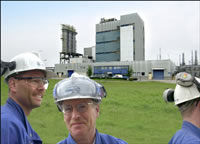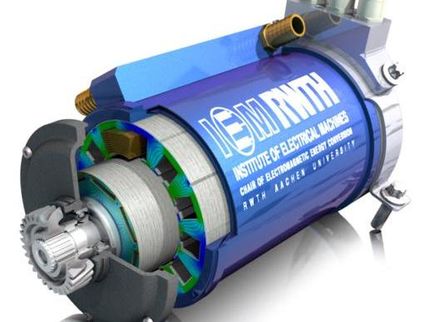Chemical sector: partial recovery in 2009, uncertainty about 2010
Zuidam (VNCI): ‘Sector plays an important role in reduction of CO2 emissions’
Advertisement
With a drop in production volume of 5% and a loss in turnover of 25% compared to 2008 (provisional figures), 2009 can be characterised as a ‘difficult’ year for the chemical industry in the Netherlands. Both in terms of production volume and turnover, the sector is back at the level of late 2003. So said VNCI chairman Jan Zuidam during the end of year press conference of his organisation.
The sector is currently crawling out of the recession. The production volume for the second half of the year will definitely be higher than that in the first half. Zuidam also looked forward to the impending climate conference in Copenhagen, where a climate treaty is to be concluded as a successor to the Kyoto treaty. The VNCI chairman sees an important role for the chemical industry in the restriction of greenhouse gas emissions.
The chemical industry makes raw materials that customers need for the manufacture of such products as insulation materials, car parts, and lighting. Products that contribute to the limitation of CO2 emissions. Throughout their entire lifecycle, these products perform better than the alternatives: the emission of greenhouse gases released during the production of raw materials is more than compensated for by the savings achieved during the usage phase. Recent research of the ICCA, the worldwide umbrella organisation of the chemical industry, reveals that for every tonne of CO2 emitted by the sector, 2.6 times as much CO2 emissions are saved further up the chain.
“The negotiators in Copenhagen will therefore have to look above all at the contribution of the sector to CO2 savings in the rest of the chain. In order to increase the net contribution even further, innovation is essential in both the process technology of our processes and in the rest of the chain as well. That would then make CO2 savings of four or five to one possible,” according to the VNCI chairman.
Zuidam does not want to make any firm predictions about the level of recovery in 2010. “If I look at the figures for the second half of 2009, although they give cause for optimism the situation is still uncertain. 2010 is a transition year, in which it will become clear whether or not the market will take up and build upon the economic recovery initiated by government policy.”
For the time being, the VNCI chairman hopes that the production volume in 2010 will be maintained at about the same level that was achieved in the final quarter of 2009. He does not expect the production volume to return any time soon to the level of 2007, the year which was the best year for the sector in terms of production volume up until now. “Turnover of €50 billion as in 2008 is definitely not on the horizon,” so he expects.
“Further growth in the sector will in any case be centred around innovation and CO2 reductions, as well as our ability to contribute to the important challenges facing our society in terms of energy, food for almost 7 billion people, a population that is getting older, and the emerging economies. That will be a determining factor for the sector,” according to Zuidam.
As a consequence of the drop in production volume in the chemical industry, in 2009 both the CO2 emissions and the energy consumption in the sector fell by approximately 5%.
From the figures announced during a press conference, it is apparent that within the chemical industry in the Netherlands the raw chemicals sector has been hit the hardest with a drop in production volume of 23% between the first quarter of 2008 and the first quarter of 2009. Thereafter the situation has gradually improved. The chemical end product industry saw the production volume decline by 14% between the first quarter of 2008 and the first quarter of 2009. This relatively smaller drop has however been accompanied by a slower recovery.




























































